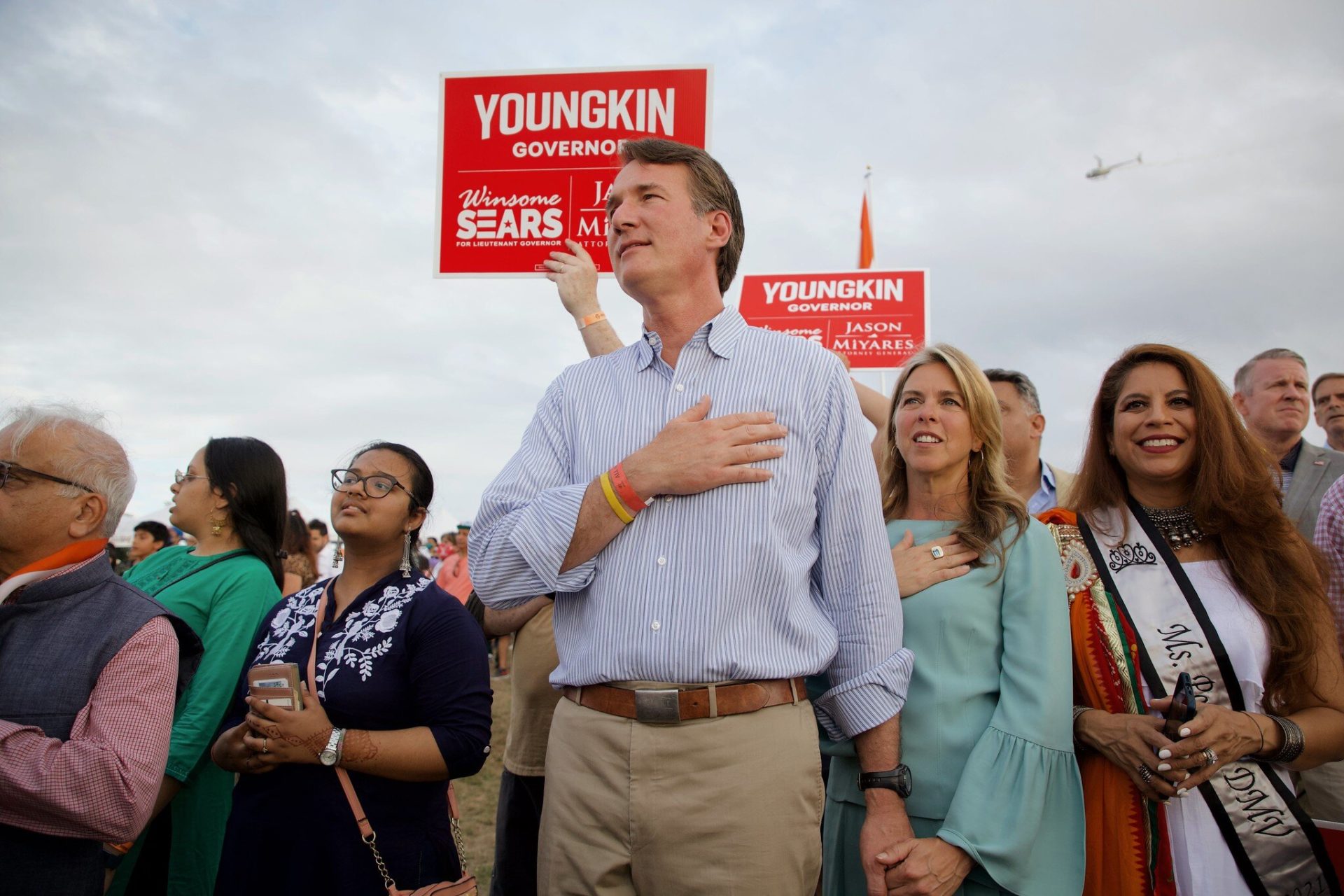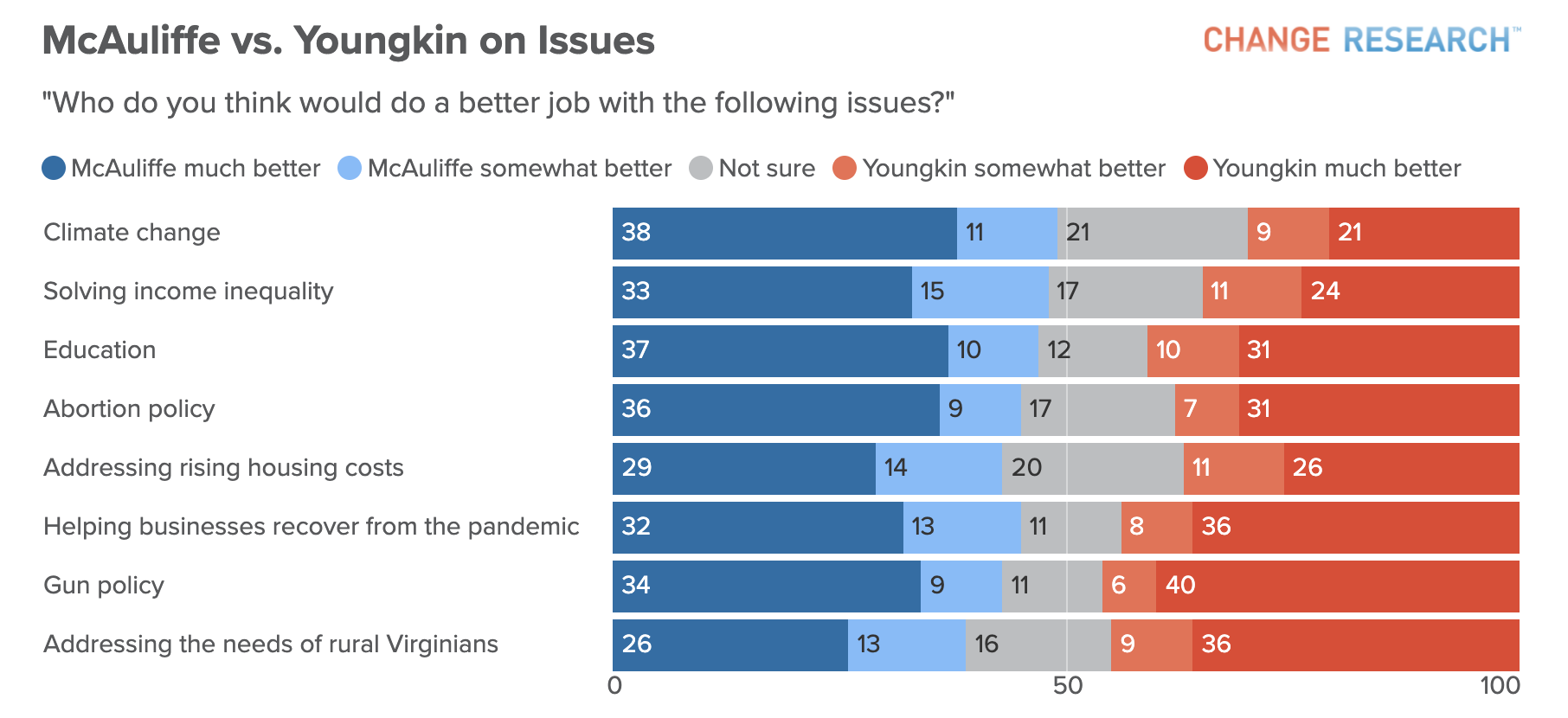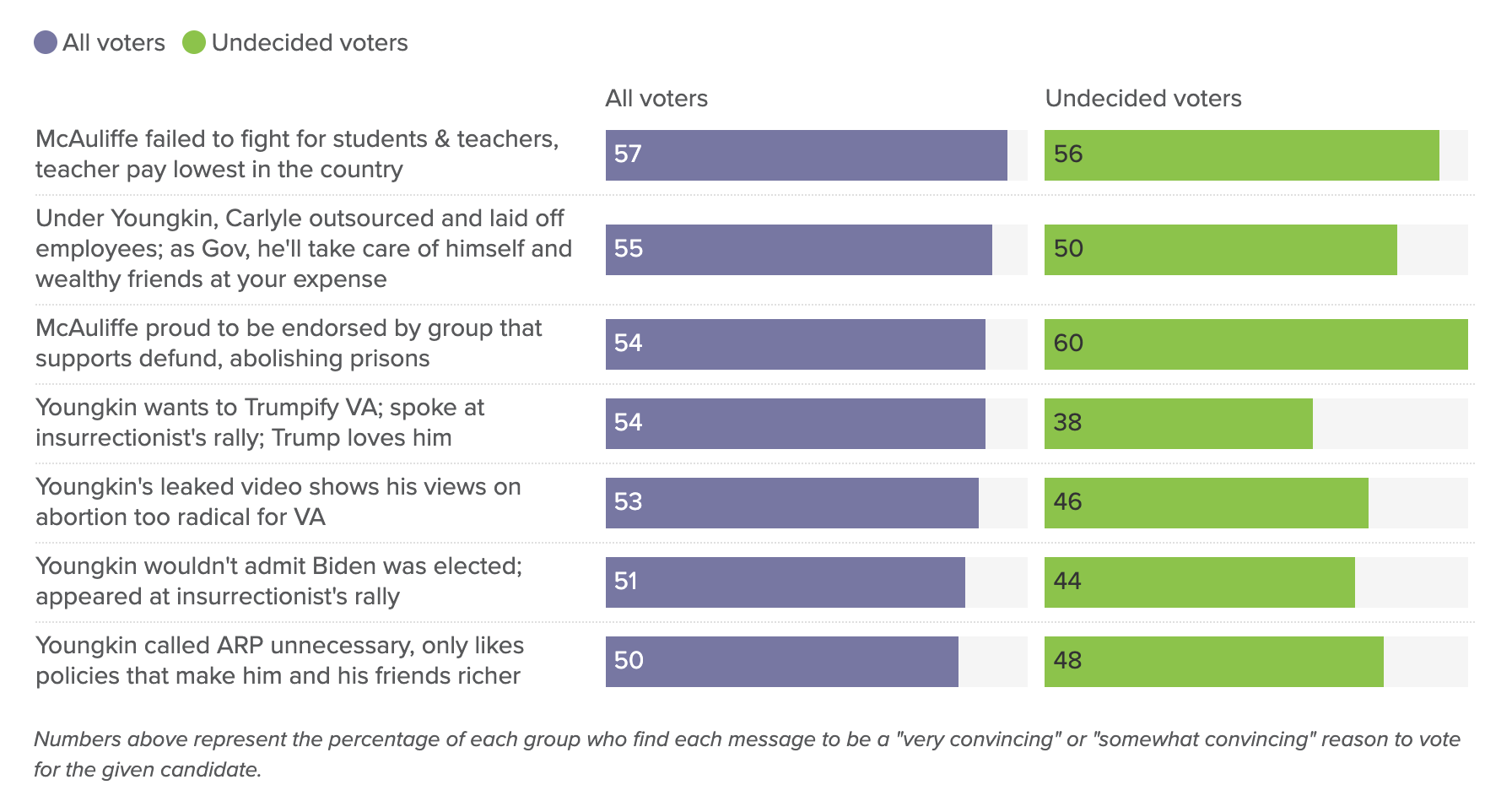
With the California recall in the rearview mirror, all eyes are focused on a governor’s race in Virginia. Early mail-in voting has already started, and America’s politicos have focused their crosshairs on Democrat Terry McAuliffe, a former governor of the state, and Republican Glenn Youngkin, a former private equity executive whom voters know practically nothing about. Youngkin is doing his utmost to pitch himself as an affable, moderate Republican from the days of old, while Democrats are tarring him as another Trump devotee.
Unlike the recent California recall, the gubernatorial race in Virginia is shaping up to be a real race. Virginia is not California, of course, and despite the exaggerated punditry and Cali Dems’ paranoid fever dreams of the 2003 gubernatorial recall that elected Arnold Schwarzenegger, Gov. Gavin Newsom’s ushered in a comfortable victory with 62.8% of voters answering “No” on the question to replace him.
In Virginia, the most recent slate of polls indicates that the race is neck-and-neck. As of this Wednesday, the FiveThirtyEight average held McAuliffe ahead by a mere 3.5 percentage points – 47.2% to 43.8% respectively. For McAuliffe, being under 50 percent is not ideal, especially considering that he is seeking to reclaim his old job. However, despite the work that McAuliffe needs to do to secure the win, he leads by large margins on nearly every issue tested save for “gun policy” and “addressing the needs of rural Virginians,” according to a recent poll by Change Research/Crooked Media.

While Virginia is an increasingly Democratic state, and Democrats have controlled the governor’s mansion since 2014, it is not nearly as blue. Biden won the state by 10 percentage points, whereas he won by a whopping 31 point margin in California. Moreover, Biden has taken a substantial hit in his approval ratings in recent weeks, and there is a distinct difference table issues and policies emanating from each state. California is battling wildfires and discussing ambitious climate change policies, for example, while Virginia is at the center of the national debate surrounding the teaching of critical race theory in public schools.
When comparing the California and Virginia race, the GOP candidates couldn’t get any more different. The Republican favorite in the California recall was Larry Elder, a firebrand conservative radio host with a long history of controversy and contrarian views on issues like gender equality, race, and labor policy. Policy views aside, the Elder campaign was also stymied by controversy given reports that once he brandished a gun at his ex-wife – a rumor he denies, but nonetheless hobbled his campaign.
Glenn Youngkin, mostly to his benefit, is virtually unknown. Perhaps the only defining quality Virginians know about him is his immense wealth. He was a co-chief executive for The Carlyle Group before stepping down last year with hundreds of millions of dollars in estimated worth. Political history has shown that Republicans have a soft spot for successful businessmen, especially those with a “rags-to-riches” story, and Youngkin is bending over backward to paint himself in that light. In a recent campaign ad, he talked about taking a “leap of faith” to joining Carlyle in 1995, in which he turned a “small start-up” into a “big company” employing thousands.
The emphasis on one’s business acumen does not come without its pitfalls. As Quentin Kidd, a political scientist at Christopher Newport University told The Washington Post, ever since Donald Trump won the presidency, the Republican base has been enthralled with anti-establishment outsiders. “What was appealing about Trump to Republican voters was that he had all the success they found attractive in a businessman, but it wasn’t establishment success. In fact, he thumbed his nose at the establishment. And Youngkin is sort of the opposite of that,” Kidd told the Post.
In short: The Carlyle Group is emblematic of the sort of elitism that base Republicans loath. Last month, The Associated Press reported that under Youngkin’s leadership, Carlyle invested in companies that shipped more than 1,300 jobs overseas. The company also has deep business ties to the Middle East, so much so that it has been at the center of conspiracy theories.
Still, the GOP has been chomping at the bit to reclaim Virginia, and the party has rallied behind Youngkin. Through donations and injecting $12 million of his personal fortune, Youngkin has been able to keep up financially with Terry McAuliffe – a prolific Democratic fundraiser. Moreover, it seems that the messaging from the Youngkin campaign has been breaking through. In the previously mentioned Change Research/Crooked Media poll, 46% of registered Republicans say they’re paying a lot of attention to the race, compared to only 33% of Dems.
These numbers place Glenn Youngkin within striking distance of the governorship, but there’s a caveat: Donald Trump, the Sword of Damocles that hangs over all GOP political hopefuls. Once Youngkin secured the GOP nomination, Trump released a statement on his website, writing, “Glenn is pro-Business, pro-Second Amendment, pro-Veterans, pro-America, he knows how to make Virginia’s economy rip-roaring, and he has my Complete and Total Endorsement!”
Trump injecting himself into the race was the sort of maneuver Youngkin tried to distance himself from. Earlier year a Christopher Newport University poll earlier this year found that 54% of Virginians consider Trump worse than most presidents. At the same time, 15% found that Trump was “one of the best,” which meant that Youngkin needed to curry favor from both traditional, moderate Republicans and Trump’s base.
It’s a fine line to walk, and one that would only have been possible without a Trump endorsement. Up to that point, Youngkin’s association with Trumpism was through policy praise and nods to the base through slogans like “Good to Great” – a more affable MAGA. In Virginia, a direct association to Trump is toxic, and paradoxically, the Youngkin campaign even tried to tie Donald Trump to Terry McAuliffe by running an ad saying that McAuliffe had an “obsession” with Trump and highlighted that McAuliffe accepted a 25,000 donation from the former president in 2009. Trump’s endorsement of Youngkin has all but eradicated this effort.
Following Trump’s endorsement of Youngkin, McAuliffe and the Democrats have done their utmost to yoke Youngkin to the former president. As soon as McAuliffe secured his primary victory, he said at his victory night party that his opponent is “not a reasonable Republican” since most of his policies align with Trump’s. President Biden himself added his own two cents, saying that Youngkin was “an acolyte for Donald Trump — for real.” And the numbers support this line of attack. When the previously mentioned Change Research poll-tested a message associating Youngkin with the former president, 54% of Virginians and 38% of undecided voters found this message to be a convincing reason to oppose him.

In their first televised debate last week, it was clear that McAuliffe was doubling down on this line of attack. When given the opportunity he did his utmost to link Youngkin to Trump, telling voters he was “too extreme” and a “Trump wannabe.” The only question that remains is whether pinning Trump to Youngkin will drive enough Democrats to the polls.

James Meadows
The managing editor of Smerconish.com, James joined the team after a year of service working as a creative writing fellow at a high school in North Philadelphia. He graduated from the University of Pennsylvania in May of 2019, receiving the Carolyn Marvin Award for “advancing our understanding of the importance of free speech and assembly in a democratic society.” A passionate journalist, James has done stints with The Philadelphia Inquirer, The Philadelphia Citizen, WHYY, and others. Today, he is in charge of managing the website, preparing the morning newsletter, and editing all of the written submissions from the Smerconish community!






